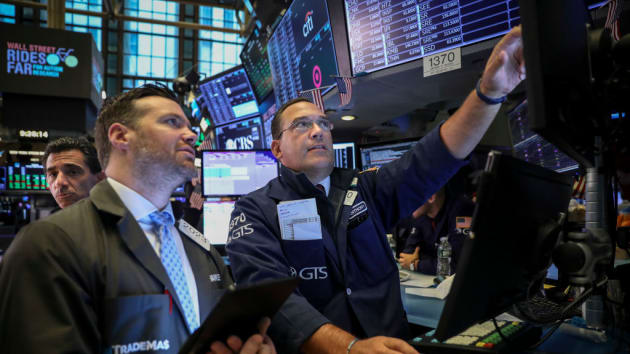
The S&P 500 could surge in a powerful rally to 3,850, if stocks stage the same type of breakout they had after the last two similar downturns, according to technical research strategists at Bank of America Merrill Lynch.
The strategists said there should be a sustained breakout of about 25%, if the market’s move from 2018 to earlier this month was a cyclical consolidation, or bear market, like the ones in 2015 to 2016 and 2011 to 2012.
“History suggests that breakouts from these ranges should be powerful,” the strategists wrote in a note. On the S&P 500, the 3,063 level was the “bears’ last stand.”
The S&P 500 was trading in record territory Tuesday, touching a new high of 3,102.
“Last’ week’s push above SPX 3,063 is an uncomfortable breakout for many who viewed the SPX pattern as bearish,” the strategists wrote, but added that the same was true of breakouts in late 2016 and early 2013. Those periods confirmed the end of two-year consolidations for the S&P, and they were associated with negative macro news and global growth scares.
“The chart pattern suggests history rhymes in late 2019,” the strategists wrote.
The strategists, Stephen Suttmeier and Jordan Young, also note that the rally is broadening with a breakout in the broad-based NYSE, which had lagged the S&P. The breakout is similar to those in 2013 and 2016, and also lines up with breakouts in the Russell 1000 Value, and the S&P industrial and financial sectors.
The small-cap Russell 2000 has not yet confirmed the bullish move, and it needs to move above 1,596 to 1,618 to confirm it. There is, however, a breakout in the Russell 2000 advance-decline line and that may be a leading indicator for a breakout in small caps, according to Suttmeier and Young.
In the past two weeks, as stocks hit new highs, Treasury yields have also been moving higher. The 10-year yield gained more than 20 basis points last week alone. The yield was at 1.94% on Tuesday.
“If the U.S. 10-year yield sustains last week’s push higher, it would support a bullish Financials (cyclicals) and bearish Utilities (defensive) trade that is similar to those coming off the 2016 and 2012 lows,” they wrote.
























